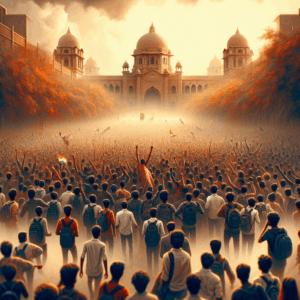
What if tomorrow’s online shopping depended on today’s data deal? Across India, the US, and around the globe, how voters search and gather political information is reshaping the digital marketplace. Let’s explore how election-related search trends reveal not just political preferences, but also insights into people’s behaviors and the future of online experiences.
Meet Priya, a Chennai-based e-commerce seller. She has noticed her advertising costs and buyer activity changing rapidly. Curious, she dives into analytics. The patterns? Directly linked to the latest election searches and the political climate. Priya’s story isn’t unique—businesses, marketers, and policymakers worldwide are tracking these shifts.
What’s happening?
Every election cycle, Google Trends and other search engines become battlegrounds for information. In India, top election queries revolve around manifestos, candidate profiles, and voting dates. In the US, they focus on electoral college math, swing states, mail ballot rules, and debate highlights. Globally, searches expand to topics like disinformation, AI’s role in voting, and international observer missions.
- India: Citizens prioritize search terms like “Lok Sabha candidate list,” “how to vote online,” and “poll booth locator.” Regional issues—from rural development to technology policies—top the charts, reflecting the electorate’s diversity and digital literacy surge.
- US: Americans drive peaks in “absentee ballot deadline,” “swing state polls,” or “live presidential debate.” Social justice, economic recovery, and cybersecurity-related queries signal widespread engagement and concern.
- Global: Outside these two giants, trending searches often include “global election monitoring,” “fake news detectors,” and “how social media affects democracy.” These patterns show growing skepticism and a need for transparent, trustworthy information.
Why does it matter?
These search trends do more than reflect public mood. They impact ad targeting, e-commerce sales, privacy policies, and even platform algorithms. Brands adjust marketing strategies in real time, while major platforms—like Meta and Google—deploy special election-integrity features. Policymakers respond with fresh regulations to counter misinformation and enhance data privacy. For everyday users, it means changes in what information is prioritized, and how easily trustworthy content is found.
What’s next?
- Upcoming electoral events and policy announcements: Both India and the US have major voting milestones ahead, which will trigger new query spikes and possibly influence global disinformation tactics.
- Stakeholder reactions: Watch for tech platforms rolling out AI fact-checkers, governments tightening data rules, and businesses shifting to “context-aware” advertisements.
- Voter outreach innovations: New features—such as live result maps, chatbot voting guides, and personalized news feeds—are likely to emerge, evolving both search and user expectations.
Election cycles are now digital battlegrounds where every search counts—from Chennai’s markets to Silicon Valley’s think tanks. As you browse, shop, or vote, your queries shape online reality.
How do you feel about this shift? Drop a comment!






